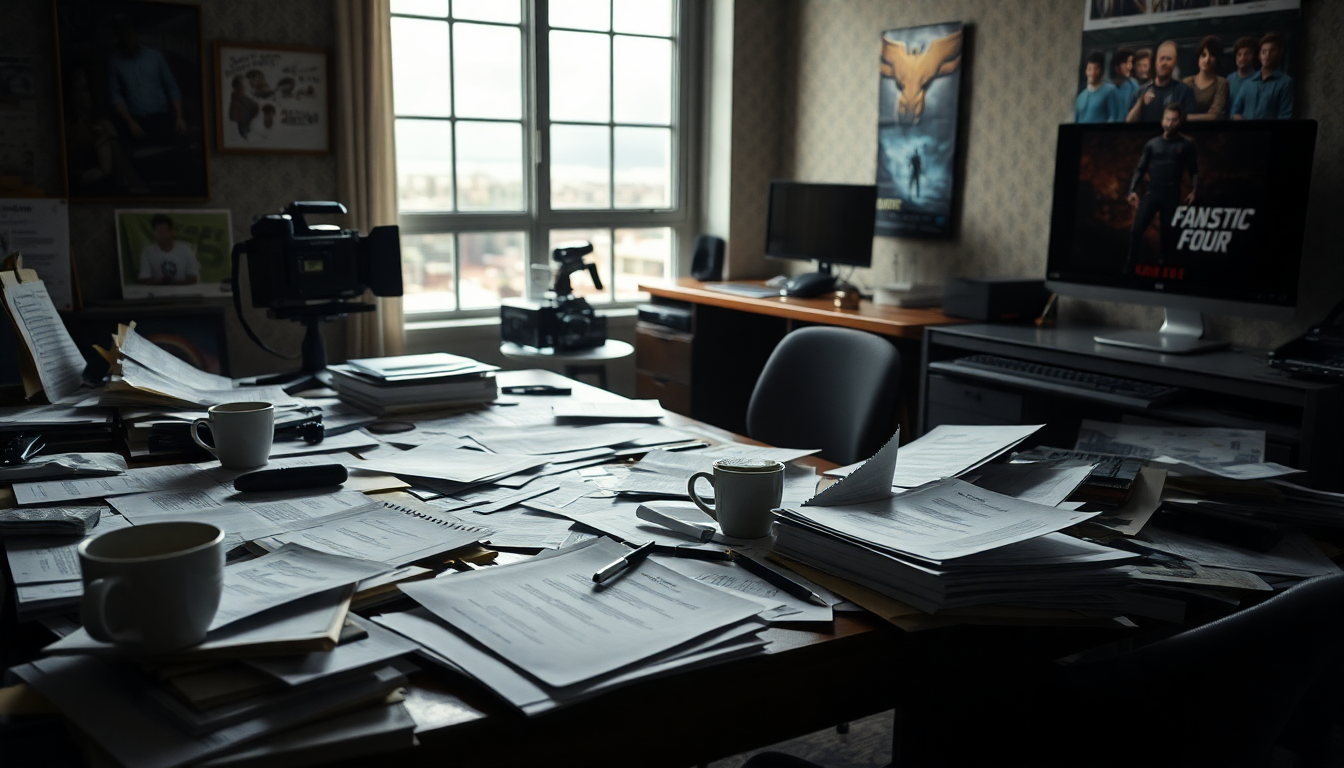Table of Contents
Chris Columbus, who’s famous for directing beloved films like Mrs. Doubtfire and the first two Harry Potter films, had quite the rollercoaster ride with the original Fantastic Four project. Even with his impressive resume, Columbus faced an unexpected dismissal from the film—a decision that not only shaped his career but also his outlook on the superhero genre.
What Went Wrong?
Columbus was heavily involved in the early phases of the Fantastic Four film, working on the script and discussing its direction. But during what he described as a “weird situation,” he was let go after voicing strong opinions about the movie’s artistic vision.
“I had worked on a script and met with the director, offering ideas that would honor the original creator, Jack Kirby,” he recalled. Imagine his shock when he received a call from the head of 20th Century Fox, informing him he was fired for having “too much of an opinion.” How frustrating must that have been for someone so passionate about the project?
This sudden exit was a tough blow for Columbus, especially since he had a growing interest in superhero films at the time.
He had previously wanted to direct Spider-Man before Sam Raimi took over and had even written a script for Daredevil. Looking back, Columbus admitted that the experience “probably soured me a little” on the genre, leading him to step back from superhero films for quite a while.
Changing Views on Superhero Movies
As the years rolled on, Columbus found himself watching other directors thrive in the superhero space, which only fueled his disinterest in joining the fray. “Over the years, people have done it so well that I personally lost interest in making a superhero movie,” he shared.
His perspective shifted notably after watching films like Spider-Man 2, which he praised as “a perfect superhero movie.” He also admired Matt Reeves’ The Batman, realizing he didn’t feel the urge to contribute to a genre where he believed others were doing it better.
In a previous interview, Columbus expressed his concerns about the visual effects necessary to bring Ben Grimm, also known as The Thing, to life on screen. He argued that without CGI, capturing the character’s true essence was nearly impossible. His vision for a more visually engaging Fantastic Four ultimately clashed with the studio, leaving him at odds with how the film was supposed to unfold.
The Legacy of Fantastic Four
Fast forward to 2005, when Tim Story took over the directorial reins for Fantastic Four, featuring a cast that included Ioan Gruffudd, Jessica Alba, Chris Evans, and Michael Chiklis. While the film saw moderate box office success, raking in $333 million globally, it faced a barrage of criticism from reviewers. Chiklis, who played The Thing, recently pointed out that despite the critics, audiences seemed to appreciate the films more than they received credit for.
In the end, Chris Columbus’ experience with Fantastic Four is a stark reminder of the complexities directors encounter in the cutthroat world of Hollywood. His story reflects the intricate dance of navigating studio politics while also showing how personal interests can evolve within a rapidly changing film industry. What do you think? Could Columbus have reshaped the superhero landscape if he had stayed on board?





